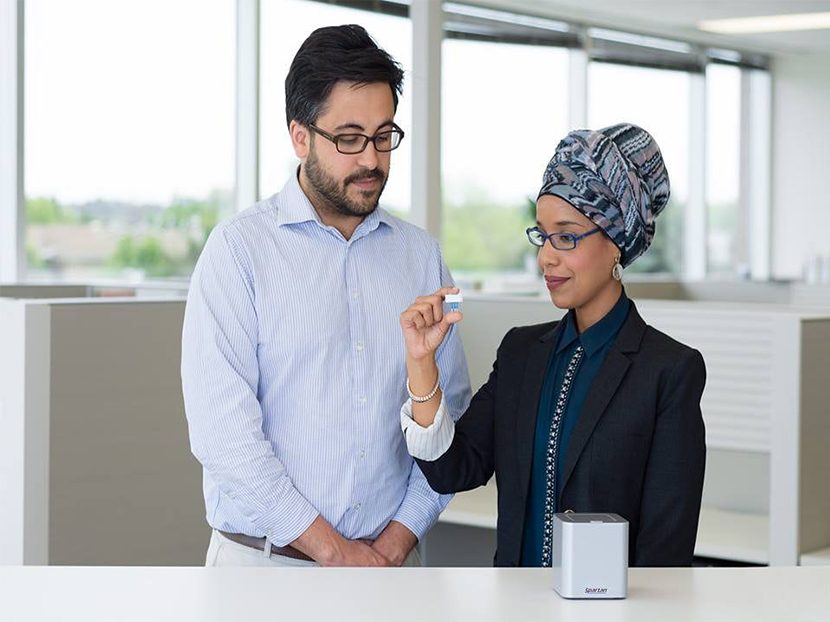Spartan Bioscience Announces World’s First On-site Legionella DNA Test

Spartan Bioscience announced the product launch of the Spartan Legionella Detection System. It is the first on-site DNA test for Legionella and it can detect and quantify Legionella bacteria in 45 minutes.
“On-site Legionella DNA testing is the first practical way to monitor and prevent Legionella outbreaks in buildings,” said Paul Lem, M.D., CEO of Spartan Bioscience. “With widespread testing, there is the potential to basically eradicate Legionnaires’ disease.”
The system consists of a coffee-cup-sized, portable DNA analyzer called the Spartan Cube and a single-use disposable test cartridge. The system is the winner of the 2018 AHR Expo Innovation Award for Indoor Air Quality, as judged by the American Society of Heating, Refrigerating and Air-Conditioning Engineers.
When labs test for Legionella, they do so by putting water samples in a Petri dish, then waiting 10 to 14 days to see if bacterial cultures grow. According to Canada's Spartan Bioscience, which is the manufacturer of the cube, Legionella populations can reach outbreak levels in just seven days. Additionally, the company claims that lab culture testing can underestimate actual Legionella levels by a factor of 10 or more.
Globally, there are hundreds of thousands of office towers, hospitals, hotels, shopping malls, and other large buildings at risk for infection by Legionella. Weekly testing with the Spartan system can detect Legionella bacterial growth early and allow cleaning and decontamination of the cooling tower before Legionella reaches dangerous levels to human health.
Due to the limitations of Legionella bacterial culture testing, cities that have implemented mandatory testing with this method continue to have outbreaks of Legionnaires’ disease. For example, New York City implemented mandatory testing regulations in 2016 but has had several fatal outbreaks in 2017.
Spartan has developed the first on-site Legionella DNA test to solve the problems of using lab-based bacterial culture. The technology is based on a highly-accurate Nobel-Prize winning chemistry called quantitative Polymerase Chain Reaction (qPCR) and it is designed to meet the objectives of ISO/Technical Standard 12869:2012: “Water quality--Detection and quantification of Legionella spp. and/or Legionella pneumophila by concentration and genic amplification by quantitative polymerase chain reaction (qPCR).”




